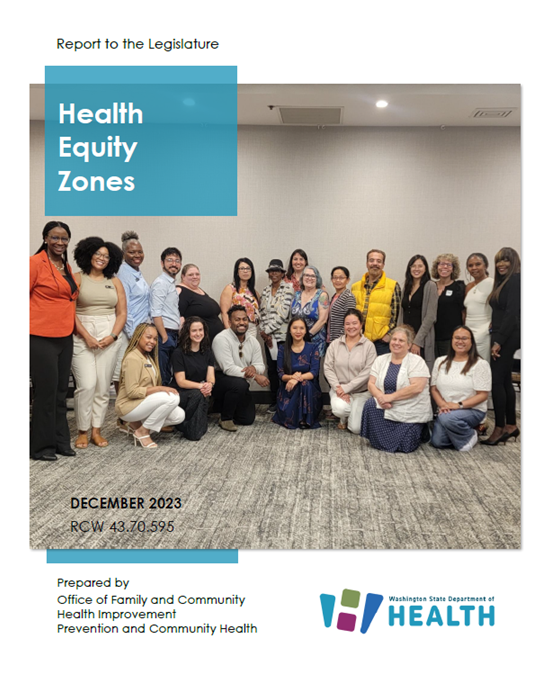
- Home
- Health Initiatives
- Health Equity Zones (HEZ) Initiative

The Washington State Health Equity Zones (HEZ) Initiative recognizes that people who are most impacted by health inequities are closest to the solutions that will improve their health. This initiative will support communities in identifying pressing health concerns and developing projects to address their unique needs.
In 2021, Senate Bill 5052 created an important foundation for the Department of Health (DOH) to support communities in identifying geographically-based health equity zones, places where people have faced more limited access to health care and other conditions that negatively impact their health. Each zone will identify pressing health concerns and develop projects to address that zone’s unique needs.
The Community Advisory Council is a statewide group made up of tribal community representatives, community representatives, and sector representatives from local health jurisdictions, Accountable Communities of Health, and the Governor’s Interagency Council on Health Disparities. This group has led decision-making on the development of the Health Equity Zones Initiative, including the nomination and selection process with guidance from the Community Workgroup – an open membership group made up of community members across the state.
Each Health Equity Zone will establish a guiding body of community members that will lead efforts to improve the health of their communities. Zones will receive $200,000 per year for two years to identify health priorities, develop community action plans, and implement solutions unique to the needs of the community. The Department of Health will work in collaboration with each zone to identify funding sources after the initial two years of core infrastructure development.